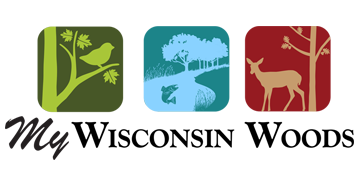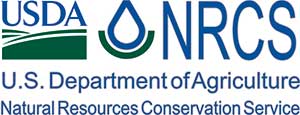Partner Services
These partners offer experts who’ll work with you to care for your land.
American Bird Conservancy
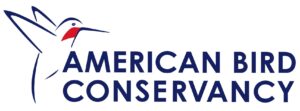
The American Bird Conservancy (ABC) works to conserve native birds and their habitats throughout the Americas. ABC has worked with partners to protect more than 993,000 acres in 14 countries in the Americas. By planting more than 5,000,000 trees and shrubs to improve and create habitat, ABC has benefited 2,454 bird species. ABC offers landowners easy ways they can live a bird-friendly life and take action to help reduce threats to birds.
American Forest Foundation
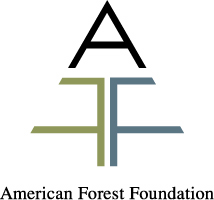
The American Forest Foundation (AFF) works closely with local partner organizations to provide technical and financial assistance to family forest owners. Through these partnerships, AFF helps landowners reach their goals while contributing to larger conservation objectives, like protecting drinking water or restoring wildlife habitat. AFF also works with policymakers to expand financial and technical support for landowners whose active management contributes to wider conservation impacts. The foundation’s website MyLandPlan.org offers resources for setting and implementing land stewardship goals, and a place for landowners to connect with foresters and other woodland owners. Through its program, the American Tree Farm System, AFF also certifies landowners who meet its standards for sustainable forest management.
American Tree Farm System/Wisconsin Tree Farm Committee
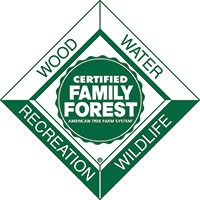
A program of the American Forest Foundation, the American Tree Farm System (ATFS) and its Wisconsin arm, the Wisconsin Tree Farm Committee (WTFC), recognize and certify tree farmers and other woodland owners who meet their standards for sustainable forest management. In addition to the credibility and distinction that comes with certification under this internationally recognized program, certified owners gain access to ATFS’s extensive tools and resources, including its national network of professional foresters. The WTFC also holds a yearly tree farm field day that includes seminars for landowners, and an annual Outstanding Tree Farmer of the Year competition.
Driftless Area Land Conservancy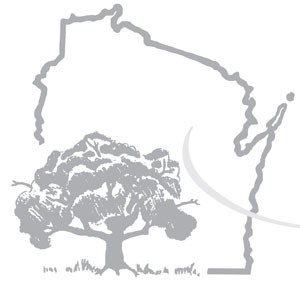
The Driftless Area Land Conservancy is a land trust that offers private landowners in Southwest Wisconsin’s Driftless area several voluntary ways to conserve their woodlands and protect their legacy long-term. These conservation options include conservation easements, land donations, and bequests.
My Lake Superior Northwoods

My Lake Superior Northwoods offers free assistance and technical advice to landowners in Northwest Wisconsin who want to care for their woods, wildlife, fields, and waters. Services include free site visits by one of the organization’s experienced natural resource professionals; e-newsletters and fact sheets; and quick, personalized answers to landowners’ questions and concerns about their land. The organization also offers assistance to those interested in funding programs such as the Natural Resources Conservation Service’s Environmental Quality Incentives Program, U.S. Fish & Wildlife’s Partners for Fish and Wildlife Program, county funding programs, and Wisconsin’s Managed Forest Law.
Natural Resources Conservation Service
The Natural Resource Conservation Service (NRCS) is the primary federal agency authorized to work with private landowners to help protect natural resources on their lands. NRCS funding and technical assistance programs, including the Environmental Quality Incentives Program (EQIP) and Conservation Stewardship Program (CSP), provide private woodland owners with a voluntary, incentive-based means to conserve their soil, water, and related resources.
The Nature Conservancy
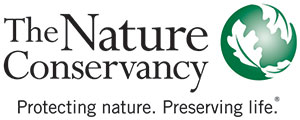
The Nature Conservancy (TNC) works with individuals, local communities, government agencies, and private businesses to protect natural landscapes. Its approaches include land purchases, placement of easements, and science-based conservation practices. The organization also partners with landowners, communities, cooperatives, and businesses to establish local groups that can protect land through tools such as land trusts, conservation easements, private reserves, and incentives. In some cases, TNC works directly with private landowners on water quality and sustainable forest management projects.
Pheasants Forever
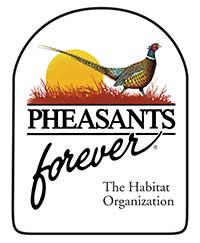
Pheasants Forever strives to conserve pheasant, quail, and other wildlife through habitat improvements, public awareness and education, and land management policies and programs. Biologists available through its Farm Bill Biologist Program work with landowners one-on-one, teaching them the benefits of various conservation programs and assisting them after programs have been implemented. In a system unique to Pheasants Forever, local county chapters are given authority to determine how 100 percent of their locally raised conservation dollars are spent. The organization also sells food plot seed and acquires land for permanent habitat protection.
Ruffed Grouse Society
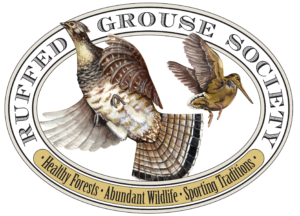
Members of the Ruffed Grouse Society support scientific, conservation, and management efforts to ensure the future of wildlife species adapted to young forest communities. The society offers technical assistance and outreach programming to help landowners achieve their forest management goals, and publishes newsletters, videos, and other educational materials on its website. It also employs a team of regional wildlife biologists who can answers questions about local wildlife management issues and point landowners to relevant publications and other resources.
Trout Unlimited
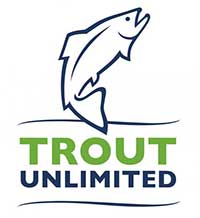
Trout Unlimited protects and restores North America’s coldwater fisheries and their watersheds through advocacy work, science-based approaches to habitat conservation, and outreach to anglers and private landowners. Trout Unlimited offers a guide for landowners of streamside habitats, My Healthy Stream. In Wisconsin’s Driftless region, the Driftless Area Restoration Effort (TUDARE) works with private landowners who donate or sell public fishing easements, to restore streamside habitats at no cost to the owners. TUDARE also educates landowners through a variety of events, workshops, tours, and publications.
USDA Forest Service
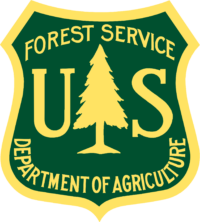
The USDA Forest Service’s landowner assistance programs help private woodland owners protect, improve, restore, and sustain their forests. These initiatives include the Forest Legacy Program, which helps states protect environmentally sensitive, private forest lands through property acquisitions and donated conservation easements; and the Forest Stewardship Program, which provides landowners with the professional planning and technical assistance needed to keep their land in a productive and healthy condition. The stewardship program also gives landowners enhanced access to other USDA conservation programs, forest certification programs, and forest product markets.
USDA Forest Service, Northeastern Area, State and Private Forestry

The USDA Forest Service, Northeastern Area, State and Private Forestry collaborates with private landowners and other partners to protect, conserve, and manage forests, community trees, and related resources. The agency offers a number of “how to” guides and other publications for landowners on its website, along with resources and information about forest stewardship, forest health, best management practices for protecting water quality, and other subjects. The agency also works with woodland owners to protect environmentally important forests from conversion to non-forest uses, mainly through use of conservation easements.
U.S. Fish and Wildlife Service, Partners for Fish & Wildlife
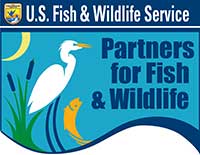
Recognizing the important role that private lands play in supporting Wisconsin’s natural resources, the U.S Fish and Wildlife Service’s Partners for Fish and Wildlife Program works one-on-one with private landowners to improve fish and wildlife habitats on their lands. Program biologists assist in developing, designing, and completing projects that restore wetland, riparian, and upland habitats, while addressing the needs and desires of landowners. The program also offers funding to carry out these projects.
University of Wisconsin-Madison Division of Extension

The University of Wisconsin-Madison Division of Extension is a source of news and expertise about forest management, forest insect and disease pests, wildlife, and many other topics of interest to landowners. Visit your local UW Extension office, or view the UW Extension’s forest management publications online.
University of Wisconsin-Madison
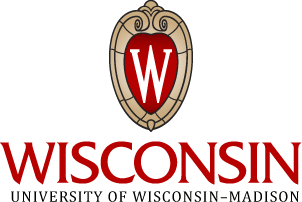
The University of Wisconsin-Madison Department of Forest and Wildlife Ecology conducts research and offers extension and outreach that benefit landowners and others across the state. Forestry and wildlife extension specialists provide programs on wildlife management, wood products, and forest management. Educational materials are available on the department’s web site.
Wisconsin Department of Natural Resources
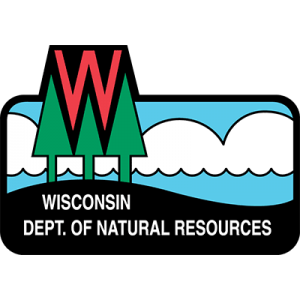
The Wisconsin Department of Natural Resources (DNR) helps private landowners sustainably manage and protect their woodlands. DNR foresters provide advice, guidance, and referrals to programs and professionals to help landowners accomplish their goals. The DNR offers incentives to help reduce the expense of owning and caring for woodlands, including Managed Forest Law (MFL), a property tax incentive program, and the Wisconsin Forest Landowner Grant Program (WFLGP), which provides financial assistance for planning and completing management practices. The agency also works with partners to support education and outreach to adult and youth audiences. Search “landowner” on the DNR website to find resources for woodland owners.
These partners offer funding to help cover the costs of caring for your land.
National Wild Turkey Federation
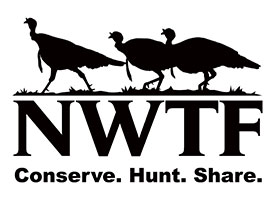
The National Wild Turkey Federation (NWTF) conserves and enhances critical upland habitat for wildlife, creates hunters, and opens access to new acres for outdoor recreation. Its conservation resources for private woodland owners include a Landowner’s Tool Box and information on planting, wildlife management, and related topics on its website. The NWTF Conservation Seed Program and Seed Subsidy Program help NWTF members purchase lower cost seed for habitat planting, especially on private lands. The NWTF regional biologist also presents at private landowner workshops from time to time.
Natural Resources Conservation Service
The Natural Resource Conservation Service (NRCS) is the primary federal agency authorized to work with private landowners to help protect natural resources on their lands. NRCS funding and technical assistance programs, including the Environmental Quality Incentives Program (EQIP) and Conservation Stewardship Program (CSP), provide private woodland owners with a voluntary, incentive-based means to conserve their soil, water, and related resources.
U.S. Fish and Wildlife Service, Partners for Fish & Wildlife

Recognizing the important role that private lands play in supporting Wisconsin’s natural resources, the U.S Fish and Wildlife Service’s Partners for Fish and Wildlife Program works one-on-one with private landowners to improve fish and wildlife habitats on their lands. Program biologists assist in developing, designing, and completing projects that restore wetland, riparian, and upland habitats, while addressing the needs and desires of landowners. The program also offers funding to carry out these projects.
Wisconsin Department of Natural Resources

The Wisconsin Department of Natural Resources (DNR) helps private landowners sustainably manage and protect their woodlands. DNR foresters provide advice, guidance, and referrals to programs and professionals to help landowners accomplish their goals. The DNR offers incentives to help reduce the expense of owning and caring for woodlands, including Managed Forest Law (MFL), a property tax incentive program, and the Wisconsin Forest Landowner Grant Program (WFLGP), which provides financial assistance for planning and completing management practices. The agency also works with partners to support education and outreach to adult and youth audiences. Search “landowner” on the DNR website to find resources for woodland owners.
These partners offer educational events and resources for woodland owners. See also our events calendar.
Aldo Leopold Foundation
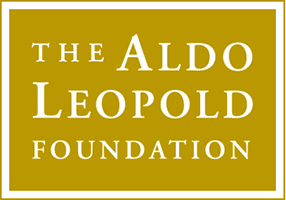
The mission of the Aldo Leopold Foundation is to inspire a caring, ethical relationship between people and land through the legacy of Aldo Leopold, one of the 20th century’s greatest conservation thinkers. As part of this work, the foundation offers and co-sponsors classes and workshops for landowners on various land care practices, such as prescribed burning and oak management.
American Forest Foundation

The American Forest Foundation (AFF) works closely with local partner organizations to provide technical and financial assistance to family forest owners. Through these partnerships, AFF helps landowners reach their goals while contributing to larger conservation objectives, like protecting drinking water or restoring wildlife habitat. AFF also works with policymakers to expand financial and technical support for landowners whose active management contributes to wider conservation impacts. The foundation’s website MyLandPlan.org offers resources for setting and implementing land stewardship goals, and a place for landowners to connect with foresters and other woodland owners. Through its program, the American Tree Farm System, AFF also certifies landowners who meet its standards for sustainable forest management.
American Tree Farm System/Wisconsin Tree Farm Committee

A program of the American Forest Foundation, the American Tree Farm System (ATFS), and its Wisconsin arm, the Wisconsin Tree Farm Committee (WTFC), recognize and certify tree farmers and other woodland owners who meet their standards for sustainable forest management. In addition to the credibility and distinction that comes with certification under this internationally recognized program, certified owners gain access to ATFS’s extensive tools and resources, including its national network of professional foresters. The WTFC also holds a yearly tree farm field day that includes seminars for landowners, and an annual Outstanding Tree Farmer of the Year competition.
My Lake Superior Northwoods

My Lake Superior Northwoods offers free assistance and technical advice to landowners in Northwest Wisconsin who want to care for their woods, wildlife, fields, and waters. Services include free site visits by one of the organization’s experienced natural resource professionals; e-newsletters and fact sheets; and quick, personalized answers to landowners’ questions and concerns about their land. The organization also offers assistance to those interested in funding programs such as the Natural Resources Conservation Service’s Environmental Quality Incentives Program, U.S. Fish & Wildlife’s Partners for Fish and Wildlife Program, county funding programs, and Wisconsin’s Managed Forest Law.
National Wild Turkey Federation

The National Wild Turkey Federation (NWTF) conserves and enhances critical upland habitat for wildlife, creates hunters, and opens access to new acres for outdoor recreation. Its conservation resources for private woodland owners include a Landowner’s Tool Box and information on planting, wildlife management, and related topics on its website. The NWTF Conservation Seed Program and Seed Subsidy Program help NWTF members purchase lower-cost seed for habitat planting, especially on private lands. The NWTF regional biologist also presents at private landowner workshops from time to time.
Ruffed Grouse Society

Members of the Ruffed Grouse Society support scientific, conservation, and management efforts to ensure the future of wildlife species adapted to young forest communities. The society offers technical assistance and outreach programming to help landowners achieve their forest management goals, and publishes newsletters, videos, and other educational materials on its website. It also employs a team of regional wildlife biologists who can answer questions about local wildlife management issues and point landowners to relevant publications and other resources.
Trout Unlimited

Trout Unlimited protects and restores North America’s coldwater fisheries and their watersheds through advocacy work, science-based approaches to habitat conservation, and outreach to anglers and private landowners. Trout Unlimited offers a guide for landowners of streamside habitats, My Healthy Stream. In Wisconsin’s Driftless region, the Driftless Area Restoration Effort (TUDARE) works with private landowners who donate or sell public fishing easements, to restore streamside habitats at no cost to the owners. TUDARE also educates landowners through a variety of events, workshops, tours, and publications.
USDA Forest Service, Northeastern Area, State and Private Forestry

The USDA Forest Service, Northeastern Area, State and Private Forestry collaborates with private landowners and other partners to protect, conserve, and manage forests, community trees, and related resources. The agency offers a number of “how to” guides and other publications for landowners on its website, along with resources and information about forest stewardship, forest health, best management practices for protecting water quality, and other subjects. The agency also works with woodland owners to protect environmentally important forests from conversion to non-forest uses, mainly through use of conservation easements.
University of Wisconsin-Madison Division of Extension

The University of Wisconsin-Madison Division of Extension is a source of news and expertise about forest management, forest insect and disease pests, wildlife, and many other topics of interest to landowners. Visit your local UW Extension office, or view the UW Extension’s forest management publications online.
University of Wisconsin-Madison

The University of Wisconsin-Madison Department of Forest and Wildlife Ecology conducts research and offers extension and outreach that benefit landowners and others across the state. Forestry and wildlife extension specialists provide programs on wildlife management, wood products, and forest management. Educational materials are available on the department’s website.
Wisconsin Bird Conservation Initiative
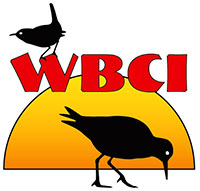
The Wisconsin Bird Conservation Initiative is a partnership of more than 150 organizations around the state whose goal is to conserve and restore endangered, threatened, and rare bird species and their habitats; educate citizens about birds and bird conservation issues; and promote the enjoyment of birds. Through conferences and other events, the organization educates private landowners and land managers on management tools, restoration strategies, and options for improving bird habitat that are specific to their land type.
Wisconsin Department of Natural Resources
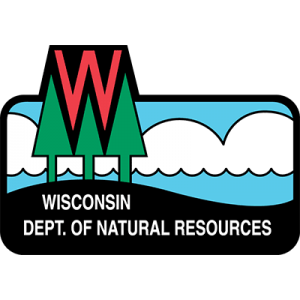
The Wisconsin Department of Natural Resources (DNR) helps private landowners sustainably manage and protect their woodlands. DNR foresters provide advice, guidance, and referrals to programs and professionals to help landowners accomplish their goals. The DNR offers incentives to help reduce the expense of owning and caring for woodlands, including Managed Forest Law (MFL), a property tax incentive program, and the Wisconsin Forest Landowner Grant Program (WFLGP), which provides financial assistance for planning and completing management practices. The agency also works with partners to support education and outreach to adult and youth audiences. Search “landowner” on the DNR website to find resources for woodland owners.
Wisconsin Walnut Council
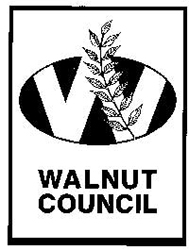
The Wisconsin Walnut Council works to increase the quantity, quality, sustainability, and utilization of black walnut (among the United States’ most valuable timber species) and other fine hardwoods. The council assists landowners by facilitating the transfer of forest research to field applications, helping build and maintain better markets for wood products and nut crops, and hosting educational events, including an annual meeting and field trips to see the latest techniques for managing walnut and other hardwoods. Field trips, seminars, and other events also encourage continuing interactions among woodland owners, scientists, and industry.
Wisconsin Woodland Owners Association

The Wisconsin Woodland Owners Association offers year-round learning opportunities for novice and experienced woodland owners who want to become better land stewards. As a nonprofit, educational association, WWOA publishes a quarterly magazine, Wisconsin Woodlands, and a biannual newsletter, News from Wisconsin’s Woods. The organization also sponsors local, regional, and statewide field days, workshops, and conferences, and a three-day annual meeting in September for its members. Local chapters, located throughout Wisconsin, are a great way to learn about local issues and meet neighboring woodland owners. WWOA members are dedicated to “Creating Tomorrow’s Woodlands Today!”
These partners offer opportunities to meet and learn from other landowners.
American Forest Foundation
The American Forest Foundation (AFF) works closely with local partner organizations to provide technical and financial assistance to family forest owners. Through these partnerships, AFF helps landowners reach their goals while contributing to larger conservation objectives, like protecting drinking water or restoring wildlife habitat. AFF also works with policy makers to expand financial and technical support for landowners whose active management contributes to wider conservation impacts. The foundation’s website MyLandPlan.org offers resources for setting and implementing land stewardship goals, and a place for landowners to connect with foresters and other woodland owners. Through its program, the American Tree Farm System, AFF also certifies landowners who meet its standards for sustainable forest management.
American Tree Farm System/Wisconsin Tree Farm Committee

A program of the American Forest Foundation, the American Tree Farm System (ATFS) and its Wisconsin arm, the Wisconsin Tree Farm Committee (WTFC), recognize and certify tree farmers and other woodland owners who meet their standards for sustainable forest management. In addition to the credibility and distinction that comes with certification under this internationally recognized program, certified owners gain access to ATFS’s extensive tools and resources, including its national network of professional foresters. The WTFC also holds a yearly tree farm field day that includes seminars for landowners, and an annual Outstanding Tree Farmer of the Year competition.
Pheasants Forever

Pheasants Forever strives to conserve pheasant, quail, and other wildlife through habitat improvements, public awareness and education, and land management policies and programs. Biologists available through its Farm Bill Biologist Program work with landowners one-on-one, teaching them the benefits of various conservation programs and assisting them after programs have been implemented. In a system unique to Pheasants Forever, local county chapters are given authority to determine how 100 percent of their locally raised conservation dollars are spent. The organization also sells food plot seed and acquires land for permanent habitat protection.
Ruffed Grouse Society

Members of the Ruffed Grouse Society support scientific, conservation, and management efforts to ensure the future of wildlife species adapted to young forest communities. The society offers technical assistance and outreach programming to help landowners achieve their forest management goals, and publishes newsletters, videos, and other educational materials on its website. It also employs a team of regional wildlife biologists who can answers questions about local wildlife management issues and point landowners to relevant publications and other resources.
Wisconsin Walnut Council

The Wisconsin Walnut Council works to increase the quantity, quality, sustainability, and utilization of black walnut (among the United States’ most valuable timber species) and other fine hardwoods. The council assists landowners by facilitating the transfer of forest research to field applications, helping build and maintain better markets for wood products and nut crops, and hosting educational events, including an annual meeting and field trips to see the latest techniques for managing walnut and other hardwoods. Field trips, seminars, and other events also encourage continuing interactions among woodland owners, scientists, and industry.
Wisconsin Woodland Owners Association

The Wisconsin Woodland Owners Association offers year-round learning opportunities for novice and experienced woodland owners who want to become better land stewards. As a nonprofit, educational association, WWOA publishes a quarterly magazine, Wisconsin Woodlands, and a biannual newsletter, News from Wisconsin’s Woods. The organization also sponsors local, regional ,and statewide field days, workshops, and conferences, and a three-day annual meeting in September for its members. Local chapters, located throughout Wisconsin, are a great way to learn about local issues and meet neighboring woodland owners. WWOA members are dedicated to “Creating Tomorrow’s Woodlands Today!”
